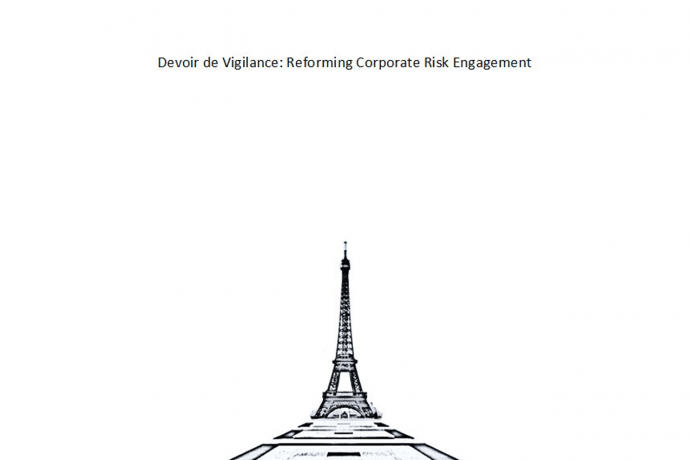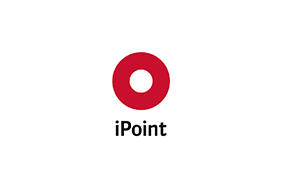Reporting Transparency Still Low in French Companies, Devoir de Vigilance Study Shows
Michelin and L’Oréal top list of 134 evaluated firms
Published 06-10-20
Submitted by iPoint-systems gmbh

Compliance, sustainability, and risk management specialist iPoint is thrilled to announce the publication of a new comprehensive benchmarking report which evaluates corporate performance under the Devoir de Vigilance law (loi 2017-399, 27/03/2017). Funded by iPoint and prepared by Development International (DI), a not-for-profit organization specialized in evaluations, the study constitutes the most systematic study of the matter to-date. The report can be downloaded from the iPoint website at https://www.ipoint-systems.com/ddv-report-2020
Applying 42 key performance indicators and 14 qualitative indicators, the report assesses compliance with the law, conformance to the UN Guiding Principles (UNGP), and disclosure transparency. Devoir de Vigilance-pursuant statements published during 2019 and concerning 2018 are evaluated for 134 French companies, thereby also offering the most extensive list of entities confirmed to be in scope of the law to the present day.
The Law
Enacted in March 2017, Devoir de Vigilance (Duty of Vigilance/Care) is the most progressive law of its kind. It establishes a duty to implement a “vigilance plan” for companies registered in French territory with more than 5,000 employees in France or more than 10,000 employees worldwide.
The vigilance plan must cover risks of severe violations to human rights and fundamental freedoms, serious bodily injury, health risks, and environmental damage resulting from the direct or indirect activity of the firm. It must also include a mapping of risks, procedures to assess them, appropriate actions to prevent and mitigate them, monitoring schemes to gauge the effectiveness of the measures, and alert mechanisms. Furthermore, a statement describing each of these elements, as well as a report on the implementation of the plan, must be published annually in the management report.
Top Scorers
Based on the indicators applied, every company evaluated received a score for each of the three dimensions of the study (legal compliance, UNGP conformance, and disclosure transparency) as well as an overall score. The firm that received the highest legal compliance score was Kering (100%). The top scorer concerning conformance with the UN Guiding Principles was Korian (64%). The highest score for disclosure transparency was obtained by Michelin (100%). The highest overall performance scores correspond to Michelin (79%), L’Oréal (76%), Vinci (74%), Carrefour (74%), and Crédit Agricole (71%).
Low Levels of Performance
The authors find rather positive levels of legal compliance, with the average compliance score being 66%. Average UNGP conformance (24%) and disclosure transparency scores (36%) were comparatively lower. Furthermore, decreasing scores for the latter requisites of the law were a trend common to the three dimensions. In other words, while reporting on measures to mitigate risks is generally more satisfactory, the quality of the vigilance plans declines with respect for procedures to assess the adequacy of those measures and to signal violations.
The study detects that the law had some reforming effect in reporting practices, but that there is still much room for improvement. A number of specific issues constituted systematic problems for the vigilance plan statements reviewed, including:
lack of proper stakeholder consultations;
absence of an adequate prioritization of risks;
little specificity in the risks mapped;
lack of alert systems involving independent third parties;
dearth of key performance indicators;
failure to disclose the results of the actions taken to mitigate risks or remediate violations.
“We find that companies establishing comprehensive governance structures tended to obtain better scores in general, with high scores under governance indicators being associated with good scores under other indicators,” Dr. Chris Bayer, Principal Investigator of the study, notes. “For instance, companies establishing monitoring and follow-up processes as well as alert mechanisms, obtained better scores.”
“Companies may feel tempted to engage in sub-standard reporting, disclosing only little and generic information when it actually may not be in their best interest to do so”, iPoint CEO Joerg Walden observes. „We are pleased that this comprehensive study shines a light on this subject, and we hope that it has a positive effect on reporting practices and, more importantly, on companies’ long-term ESG and sustainability performance – also in view of other existing regulations and the European Commission's recent announcement of introducing a legislative proposal on mandatory corporate human rights and environmental due diligence in 2021.”
Resources:
The full report, entitled “Devoir de Vigilance: Reforming Corporate Risk Engagement,” can be downloaded from the iPoint website at https://www.ipoint-systems.com/ddv-report-2020
Evaluated companies can also request their individual scorecards with a breakdown of their overall score into the legal compliance score, UNGP compliance score, and the disclosure transparency score, as well as the indicator-by-indicator disaggregation from this website.

iPoint-systems gmbh
iPoint-systems gmbh
iPoint is a leading provider of software and consulting for environmental and social product compliance, and sustainability. Tens of thousands of companies around the globe rely on iPoint for managing, tracking, analyzing, and reporting data across the whole value creation network. iPoint’s software and consulting services support you in meeting and staying one step ahead of regulations and requirements such as REACH, RoHS, WEEE, ELV, Conflict Minerals- and Modern Slavery-related laws, as well as other trending developments in the compliance and sustainability arena.
More from iPoint-systems gmbh

